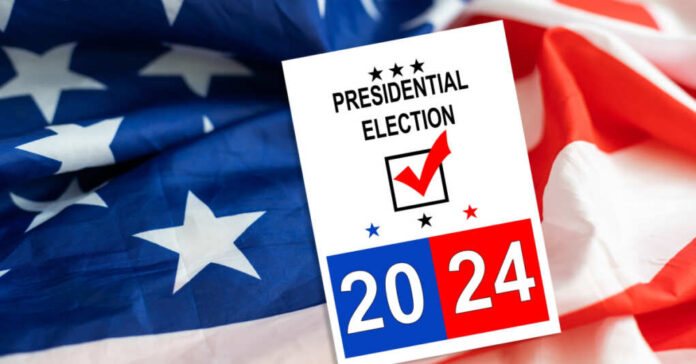
With Biden’s current trajectory, it’s conceivable that he will not last through this election cycle, politically or mentally. This leaves the future of the Democratic presidential nominee uncertain, and many are worried that an outsider may jump in and steal his nonexistent thunder.
Rules and guidance have been established for this situation. Based on the US Constitution, federal and state laws, and the rules and procedures of the Democratic National Committee and the Electoral College, some rules have established historical precedents, while others are ambiguous or contested.
If Biden withdraws from the race now, before the primaries are over, he will open up the field for other potential Democratic contenders to join and vie for the nomination. However, some of these newcomers may encounter challenges in qualifying for the ballot in specific states, as the deadlines for ballot access have either passed or are swiftly approaching. Additionally, the Democratic National Committee would need to deliberate on conducting additional debates or adjusting participation criteria.
Should Biden exit the race during the primaries, the remaining candidates would endeavor to court his supporters and delegates. It’s plausible that no candidate would secure a majority of delegates by the conclusion of the primaries, potentially leading to a contested convention. This is unusual but not unprecedented, and history tells us what this could look like.
In 1968, President Lydon B. Johnson ended his reelection campaign after narrowly winning New Hampshire’s primary. Hubert Humphrey, Johnson’s vice president, began campaigning in his place but found he had missed the deadline for filing to appear on several state ballots. When no candidate won the majority of delegates, Humphrey was chosen at the 1968 Democratic convention.
It’s a similar outcome to a situation in which Biden withdraws post-primaries but pre-convention. Biden’s delegates would be relinquished to the convention. The convention would become an open forum where delegates are not bound, allowing them to vote for any candidate. The Democratic National Committee would establish the rules and procedures for this convention, but it would be a chaotic situation with a circus theme.
If Biden withdraws after the convention but before the general election, the Democratic National Committee would be responsible for selecting a replacement nominee. The committee would convene a special meeting to vote on the new candidate. While the vice-presidential nominee wouldn’t automatically ascend to the presidential nominee position, they could be considered for the role. In 1968, Hubert Humphrey dropped out of the race after the Democratic convention but before the general election due to a terminal illness. Although he endorsed his running mate, Edmund Muskie, as his replacement, the Democratic National Committee chose Senator Ted Kennedy as the new nominee.
Should Biden exit after the general election but before the Electoral College vote, the scenario would be unprecedented and uncertain. Electors, appointed by the states, would grapple with the decision of whether to cast their votes for Biden, his replacement, or an alternative candidate. State laws and regulations governing electors vary, potentially leading to legal disputes over the validity and legitimacy of the electoral votes.
The situation would be more straightforward if Biden withdrew after the Electoral College vote but before the inauguration. As per the 20th Amendment, if the president-elect cannot serve, the vice president-elect assumes the presidency.
If one considers that Democrats are good at playing the long game, it’s easy to see why there’s no hurry to push Biden out of the picture. The best way for them to succeed is to ensure Biden remains until at least after the convention. At that point, Democrats could call a special session and appoint anyone they like as the new nominee, skipping over Vice President Kamala Harris altogether. For instance, this could be a way of sneaking Gavin Newsome into the ring, as some have speculated.
If Democrats prefer to advance Harris, Biden must hang on until after the electoral college vote. At that point, Harris automatically assumes the presidency. Considering how wildly unpopular Harris is and how unlikely she would be to win if she strikes out on her own, it’s not an unrealistic strategy.
As the 2024 election nears, Democrats are slowly allowing Americans to get a realistic view of Biden’s diminishing mental acuity to add to their already healthy doses of distrust and disillusionment. If liberals can maintain the delicate balance of propping him up while knocking him down for a few months longer, they can stage an epic coup with a nominee that no one saw coming…or wanted.














